- Binding : Paperback
- Publisher : Taxmann
- Author : Sushma Arora
- Edition : 12th Edition 2024
- Language : English
- ISBN-10 : 9789357786775
- ISBN-13 : 9789357786775
Taxmann’s Business Laws | B.Com. (Hons.) | UGCF by Sushma Arora – 12th Edition 2024
₹675.00 Original price was: ₹675.00.₹574.00Current price is: ₹574.00.
Taxmann’s Business Laws | B.Com. (Hons.) | UGCF by Sushma Arora – 12th Edition 2024. This book provides a comprehensive guide on key Business Laws, including the Indian Contract Act 1872, the Sale of Goods Act 1930, and the Limited Liability Partnership Act 2008. It aims to impart essential knowledge relevant to physical and virtual business activities, enhanced by relevant case laws. Designed for undergraduate commerce and management students, it meets the curriculum needs of various universities and professional courses. The 12th edition includes revised content, updates on new laws, practical exercises, and enriched chapters for a more comprehensive understanding.
10 in stock
Taxmann’s Business Laws | B.Com. (Hons.) | UGCF by Sushma Arora – 12th Edition 2024.
Taxmann’s Business Laws | B.Com. (Hons.) | UGCF by Sushma Arora – 12th Edition 2024.
Description
This book provides a comprehensive and authentic guide on key Business Laws, including:
- Indian Contract Act, 1872
- Sale of Goods Act, 1930
- Limited Liability Partnership Act, 2008
This book aims to impart fundamental working knowledge of essential business laws relevant to general business activities in both physical and virtual spaces. It includes relevant case laws to enhance understanding.
This book is designed to meet the needs of students enrolled in undergraduate courses in commerce and management, particularly:
- B.Com. (Hons.) Core Paper BCH: DSC – 1.2, based on the Undergraduate Curriculum Framework (UGCF) for Delhi University
- B.Com. (Prog.) Core Paper BC: DSC 1.2, based on the UGCF for Delhi University
- Non-Collegiate Women’s Education Board
- School of Open Learning of the University of Delhi
- Various Central Universities throughout India
- BBA, MBA, CA-Intermediate (IPC), and Company Secretaries courses
The Present Publication is the 12th Edition, authored by Sushma Arora, and includes the following noteworthy features:
- [Highlights of the 12th Edition]
- Revised and Updated Text – The content has been thoroughly revised and updated to reflect the latest changes in business laws
- Indian Contract (Amendment) Bill, 2024 – The amended definition of coercion as per Section 15 of the Indian Contract (Amendment) Bill, 2024, dated February 2, 2024, has been added in Chapter 5
- Replacement of IPC, CrPC, and Evidence Act – The Indian Penal Code (IPC) has been replaced with the Bharatiya Nyaya Sanhita (BNS), the Code of Criminal Procedure (CrPC) with the Bharatiya Nagarik Suraksha Sanhita (BNSS), and the Indian Evidence Act with the Bharatiya Sakshya Adhiniyam (BSA). These new laws will come into effect from July 1, 2024. Key provisions of BNS and brief descriptions of the other two Acts are provided in Chapter 6
- Companies Act Provisions Applicable to LLP – The Ministry of Corporate Affairs (MCA), via Notification No. G.S.R. 110(E), dated February 11, 2022, has made certain sections of the Companies Act 2013 applicable to Limited Liability Partnerships (LLP). These sections are covered in Chapter 19
- Limited Liability Partnership (Second Amendment) Rules, 2023 – The MCA, via Notification No. G.S.R. 644(E), issued on September 4, 2023, substituted Forms 3 and 4 in the Limited Liability Partnership Rules, 2009. These changes are included in Chapter 20
- Limited Liability Partnership (Third Amendment) Rules, 2023 – On October 27, 2023, the Central Government notified the Limited Liability Partnership (Third Amendment) Rules, 2023, which include major changes such as maintaining a register of partners and providing declarations disclosing beneficial interest. These amendments are added in Chapter 21
- Practical Exercises – Practical exercises as per the New Education Policy have been included before the DU question papers section. These exercises, including case studies on Caveat Emptor under UNIT 4, Sale of Goods Act, 1930, aim to provide practical exposure
- Content Enrichment – Content in some chapters has been enriched to provide a more comprehensive understanding.
- [Simple & Systematic Presentation] The subject matter is presented systematically and straightforwardly, along with comprehensive explanations
- [Examples & Case Studies from Landmark Rulings] This book offers extensive coverage of business laws with interesting examples and case studies derived from landmark rulings. It also covers case laws recommended by the Department of Commerce, Delhi University
- [Test Questions | Practical Problems | True/False Statements] At the end of each chapter, test questions, practical problems, and true/false statements with hints are provided to give students thorough practice in solving examination questions
- [Previous Exam Question Papers] The book includes previous exam question papers from the last few years to help students understand the types of questions usually asked
- [Student-Oriented Book] Developed with student interaction in mind, this book incorporates feedback and responses from classroom experiences shaped by the author’s extensive teaching experience at various levels
The contents of this book are as follows:
- Indian Contract Act, 1872
- Nature, Meaning, Essentials, and Kinds of Contract
- This chapter introduces the Indian Contract Act, detailing its extent and commencement and addressing the limitations of the Act. It defines what constitutes a contract, emphasising that while all contracts are agreements, not all agreements qualify as contracts. The essentials of a valid contract are thoroughly discussed, highlighting key aspects such as the nature of contracts, their classification, and significant distinctions in contract law.
- Practical examples, test questions, and true/false statements are included to reinforce learning.
- Offer and Acceptance
- This chapter explains the concepts of offer and acceptance, which are critical to forming a contract. It defines a valid offer, differentiates between an offer and an invitation to offer, and categorises different offers. The chapter also covers the importance of special terms in contracts and the enforceability of agreements in the future. It discusses the elements of valid acceptance, communication protocols, and the revocation of offers and acceptances.
- Practical scenarios like contracts made via telephone, telex, fax, or email are also examined.
- Test questions, practical problems, and true/false statements are provided to aid understanding.
- Consideration
- Here, the concept of consideration is explored, defining what constitutes valid consideration and its essentials. The rule of ‘no consideration, no contract’ is explained along with its exceptions. The doctrine of privity of contract is discussed to illustrate who can enforce a contract.
- To ensure thorough comprehension, the chapter is supplemented with test questions, practical problems, and true/false statements.
- Competency of the Parties to Contract
- This chapter discusses the legal capacity of parties to enter into a contract, explaining who is competent to contract, including minors, persons of unsound mind, and disqualified persons. It discussed the nature of minors’ agreements and the law relating to such agreements.
- The chapter includes test questions, practical problems, and true/false statements to facilitate practical understanding.
- Free Consent
- Free consent is crucial for a valid contract, and this chapter defines consent and free consent, addressing factors that vitiate free consent, like coercion, undue influence, fraud, misrepresentation, and mistake. It explains the features, effects, and distinctions between these factors.
- Case studies, practical examples, test questions, and true/false statements are included.
- Legality of Object and Consideration
- This chapter outlines what makes an object or consideration lawful or unlawful, discussing the public policy doctrine and its application. Agreements opposed to public policy and the effects of illegal agreements are examined.
- Practical problems, test questions, and true/false statements are provided to illustrate these concepts.
- Void Agreements and Contingent Contracts
- The nature of void agreements and contingent contracts is explained in this chapter. It covers expressly declared void agreements, collateral transactions, and the doctrine of restitution. The rules regarding the performance of contingent contracts and the distinction between wagering agreements and contingent contracts are discussed.
- This chapter includes practical problems, test questions, and true/false statements.
- Quasi Contracts
- Quasi-contracts are analysed, and their rationale and various types are defined.
- The chapter includes practical examples and test questions to help students understand quasi-contracts’ theoretical and practical aspects.
- Nature, Meaning, Essentials, and Kinds of Contract
- Discharge of Contract and Remedies for Breach of Contract
- Discharge of Contract
- This chapter discusses the various modes of discharging a contract, including performance, agreement, impossibility, lapse of time, breach, and operation of law. It provides a detailed examination of each mode and its implications.
- Test questions and true/false statements are included to test comprehension.
- Remedies for Breach of Contract
- The remedies available for breach of contract are detailed in this chapter, including damages, rescission, quantum meruit, specific performance, and injunction.
- Each remedy is explained with examples, and practical problems, test questions, and true/false statements are provided to reinforce understanding.
- Discharge of Contract
- Introduction to Special Contracts
- Indemnity and Guarantee
- This chapter introduces contracts of indemnity and guarantee, discussing their essentials, rights, and liabilities of the parties involved. Distinctions between indemnity and guarantee, types of guarantees, and the revocation of continuing guarantees are explained.
- Test questions, practical problems, and true/false statements are included.
- Contract of Bailment and Pledge
- The concepts of bailment and pledge are covered in this chapter, explaining their essentials, types, rights, and duties of bailors and bailees and the distinctions between bailment and pledge.
- The chapter includes practical problems, test questions, and true/false statements.
- Contract of Agency
- Agency contracts are analysed in this chapter, defining agents and principals, the creation and termination of the agency, and the rights and duties of agents and principals. Distinctions between sub-agents and substituted agents are also discussed.
- This chapter includes test questions, practical problems, and true/false statements.
- Indemnity and Guarantee
- Sale of Goods Act, 1930
- Nature and Formation of Contract of Sale
- This chapter explains the provisions of the Sale of Goods Act, defining key terms and the essentials of a valid contract of sale. It discusses the classification of goods, the effect of the perishing of goods, and the ascertainment of price.
- Test questions, practical problems, and true/false statements are provided.
- Conditions and Warranties
- The distinctions between conditions and warranties, their implications, and the doctrine of caveat emptor are covered in this chapter.
- It includes test questions, practical problems, and true/false statements to reinforce learning.
- Transfer of Property
- Rules regarding the transfer of property, the principle of ‘nemo dat quod non-habet’ (sale by non-owners), and the implications of these rules are discussed in this chapter.
- Practical problems, test questions, and true/false statements are included.
- Performance of Contract of Sale
- This chapter explains the meaning and modes of delivery, the rules relating to the delivery of goods, and the rights and duties of buyers and sellers.
- Test questions and true/false statements are provided to aid understanding.
- Unpaid Seller and His Rights
- The rights of unpaid sellers, including lien, stoppage in transit, and resale, are discussed in this chapter, along with the remedies available to buyers against sellers.
- Test questions, practical problems, and true/false statements are included.
- Nature and Formation of Contract of Sale
- Limited Liability Partnership Act, 2008
- Introduction to LLP – Nature and Scope
- This chapter introduces the Limited Liability Partnership (LLP) Act, explaining the need for LLPs, their objectives, global scenarios, prospective users, and legal framework. Key features and comparisons with other business forms are discussed.
- Test questions and true/false statements are provided.
- Formation and Incorporation of LLP
- The prerequisites and process for incorporating an LLP, recent amendments, and the provisions relating to the name and registered office of an LLP are covered in this chapter.
- Test questions and true/false statements are included.
- Partners and Their Relations in LLP
- This chapter explains who can be a partner in an LLP, the rights and duties of partners, the extent of liability, and the process of ceasing to be a partner. The concept of whistleblowing and the contribution of partners are also discussed.
- Test questions and true/false statements are provided.
- Conversion into LLP
- The procedures for converting a partnership firm, private company, and unlisted public company into an LLP are detailed in this chapter.
- Test questions and true/false statements are included to aid comprehension.
- Introduction to LLP – Nature and Scope
- Practical Exercises
- Practical exercises are provided for each unit, covering various scenarios to help students apply theoretical knowledge to real-life situations. These exercises are designed to provide practical exposure and are followed by question papers from previous years to help students prepare for exams effectively.
Details
| Publisher | |
|---|---|
| Language | |
| Author |


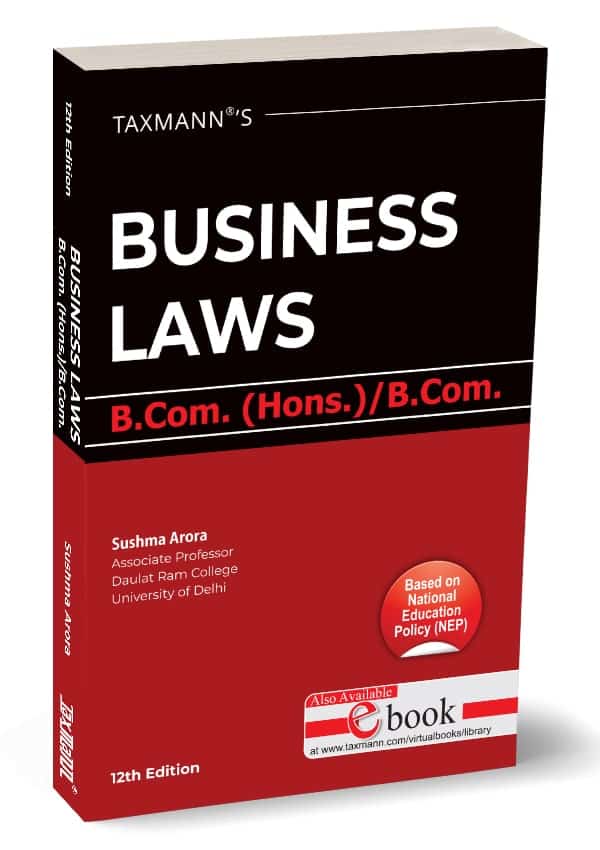


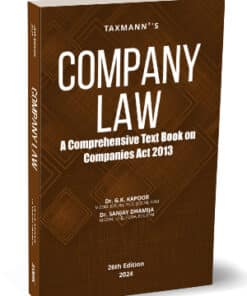
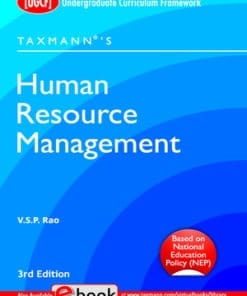
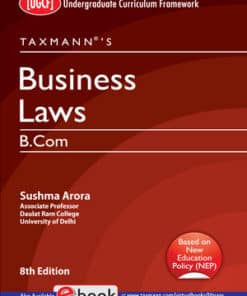
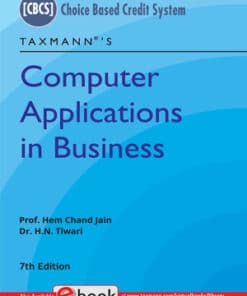
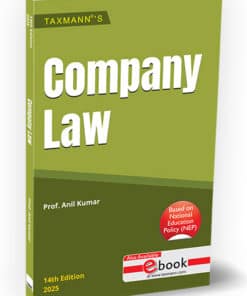
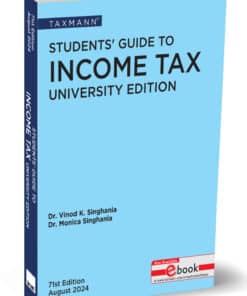
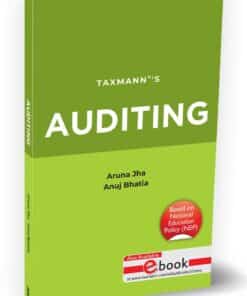
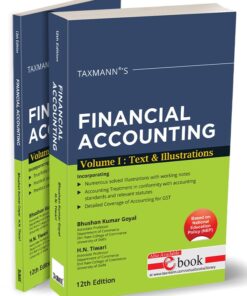
Reviews
There are no reviews yet.